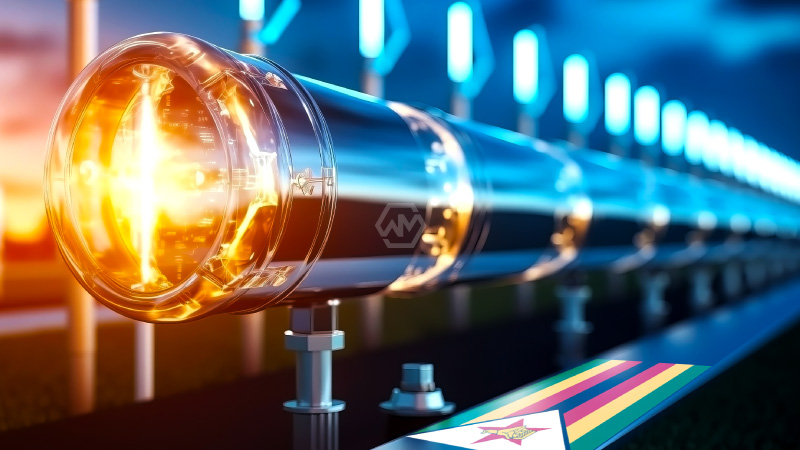As demand for the metal soars due to its usage in electric car batteries, a Chinese mining company officially unveiled a USD 300 million lithium processing factory in Zimbabwe on Wednesday. Zimbabwe is home to one of the world‘s largest lithium reserves.
It has recently attracted investors from Canada, the UK, and Australia who are interested in battery minerals, despite China being the leading player.
Lithium Processing in Zimbabwe
According to Zimbabwean President Emmerson Mnangagwa, the plant opened by Zhejiang Huayou Cobalt subsidiary Prospect Lithium Zimbabwe can convert 4.5 million metric tonnes of hard rock lithium into concentrate for export each year.
Mnangagwa was present for the grand opening of the expansive facility in Goromonzi, which is located approximately 50 miles (80 kilometers) southeast of Harare, the capital of Zimbabwe.
- A $300 million factory for processing lithium has opened in Zimbabwe thanks to a Chinese mining company.
- Zimbabwe’s Prospect Lithium Zimbabwe plant converts 4.5 million tonnes annually.
- Prospect Lithium Zimbabwe plans to process 450,000 tonnes of concentrate annually.
According to Mnangagwa, lithium is the mineral of the present and the future, and adding value will make our nation a competitive and developing player in the global lithium value chain.
He urged the business to expand its knowledge so that Zimbabwe and other southern African nations may someday produce lithium batteries and other components domestically.
For the batteries of electric vehicles, lithium is essential. Zimbabwe last year forbade the export of unprocessed lithium ore to profit from demand. By doing so, it joined nations like Indonesia and Chile that require miners to make local investments in processing and refining before they can export to optimize the value of their lithium, cobalt, and nickel reserves.
Trevor Barnard, the deputy general manager of Prospect Lithium Zimbabwe, stated that the company intends to begin by processing 450,000 tonnes of concentrate annually. Outside of Zimbabwe, the concentrate will undergo additional processing to produce battery-grade lithium.



